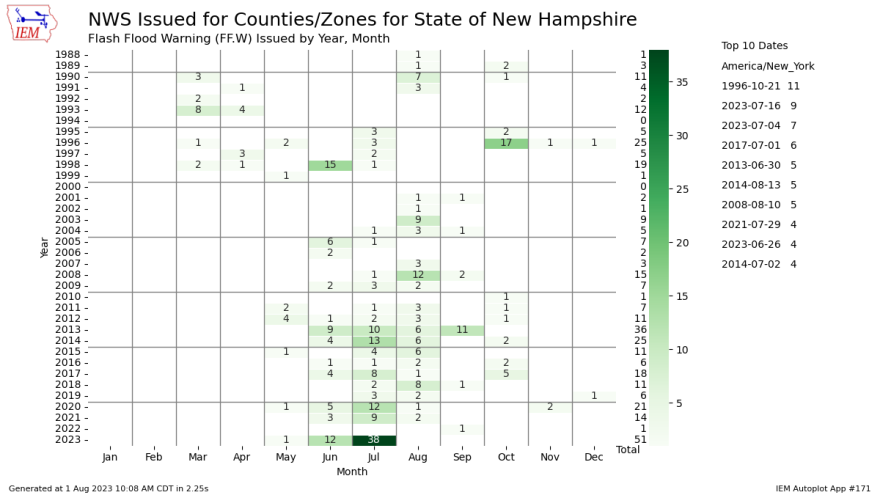New Hampshire issued more flash flood warnings in July than it has for any other entire year on record.
The previous record for the most flash flood warnings issued in a single month was in 1996, tallying up to 17.
According to data from the National Weather Service, the state issued 38 flash flood warnings in July. Until now, the weather agency has never recorded more than 36 flash flood warnings in a year.
Sarah Jamison, a senior hydrologist with the National Weather Service in Maine, said it was more than just rain advisories that set last month apart. In July, New Hampshire saw an entire summer’s worth of rainfall, Jamison said.
“Once we basically saturated the ground conditions and filled up our lakes, we became very vulnerable to flash flooding,” she said.
Jamison said this summer started with a wet pattern that continued into July, overwhelming local water bodies that could no longer be contained.

Areas such as the Monadnock Region were particularly at risk during repeated flooding events, due to initial stress on infrastructure such as roads, culverts and bridges, Jamison told NHPR last month.
Jamison said August is expected to be drier, which should give lakes, rivers and ponds a chance to recede to normal levels.
With climate change, New Hampshire may continue to see more extreme precipitation events in the future.








